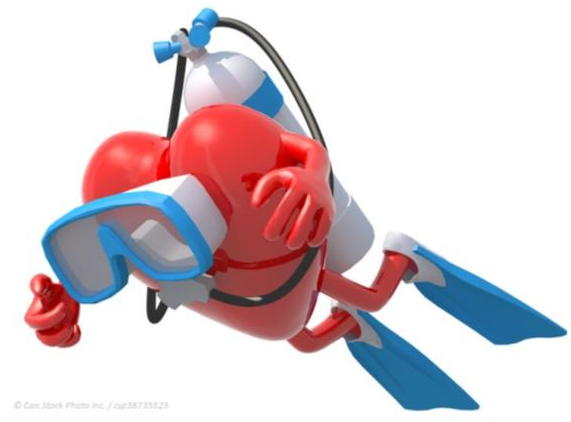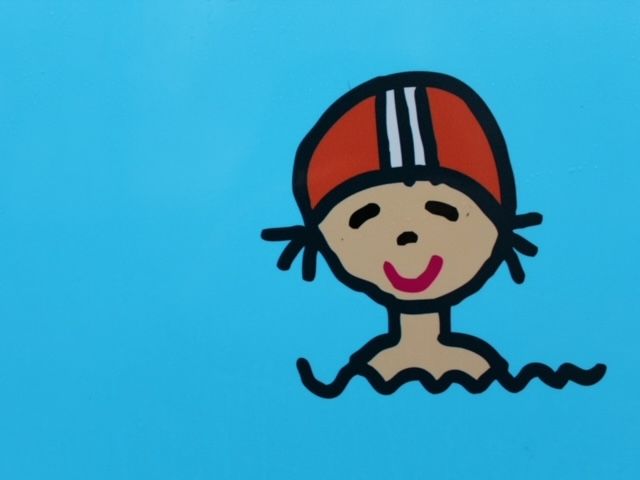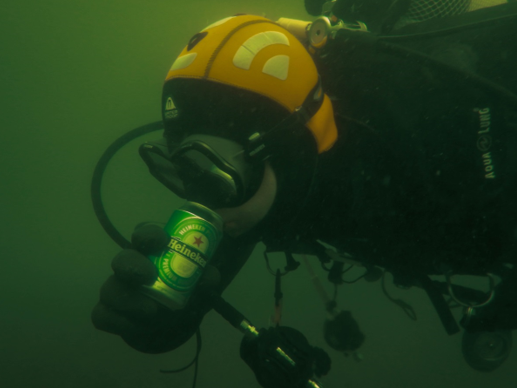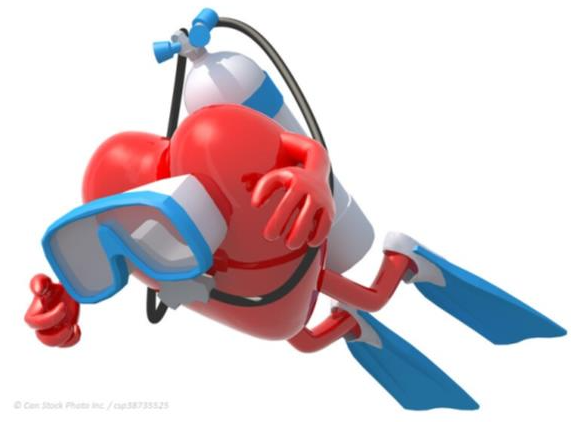(Medical) questions
Every now and then there is a (medical) question that everyone wants an answer to. We will post these below.
Do you have a question? Ask us via the contact form.
Do you have a question? Ask us via the contact form.
The heart and diving
Author: Franka Appelman
Created: 21 December 2020
 In the world of diving medicine, we always say that cardiac arrest while diving is very likely to be fatal. If you suffer a cardiac arrest on the tennis court, resuscitation can be started immediately and the emergency services will be on site quickly. This is not possible on or under the water, and the chance of death is almost 100%. In addition, diving itself also poses a greater risk of heart problems, and this can already occur in the first meters of the dive. How this works, I will try to explain in this blog.
In the world of diving medicine, we always say that cardiac arrest while diving is very likely to be fatal. If you suffer a cardiac arrest on the tennis court, resuscitation can be started immediately and the emergency services will be on site quickly. This is not possible on or under the water, and the chance of death is almost 100%. In addition, diving itself also poses a greater risk of heart problems, and this can already occur in the first meters of the dive. How this works, I will try to explain in this blog.
Although diving feels like a very relaxed sport (at least for me!), it puts quite a strain on the body and in particular on the heart. Every effort and every sport demands something from the heart. In case of diving, the effort is, among other things, walking to and from the dive site with the heavy diving equipment. The diving equipment together quickly weighs 40 kg. In some places you have to cover quite a distance with obstacles. In addition, swimming against a current also puts a strain on the heart.
But it's not just the effort itself that puts the strain on the heart in diving! It is also the extra blood volume that the heart has to process when diving. This happens through different mechanisms (hydrostatic pressure, diving equipment, water temperature, lying horizontal position, see my other blog for further explanation). This extra blood volume already arises at the moment of immersion, and is therefore independent of the depth at which you dive.
- Increased blood flow to the heart creates extra pressure in the chest cavity.
- The heart has to contract more forcefully to process all this blood -> the heart-minute volume increases.
- There is an increase in blood pressure due to the increased blood volume in combination with the exercise.
- In the first minutes after immersion, heart beats often occur [extrasystoles], probably due to stretching of the heart muscle.
A good heart function is therefore necessary for safe diving. It is important if you have had heart problems in the past and/or take medication for the heart or blood pressure, that it is examined whether the heart function is sufficient for diving. During a diving examination by a diver doctor, a fitness test can be taken, which gives an indication of the heart function. In case of doubt, an examination by a diving medical trained cardiologist will be necessary before an assessment can be made about the medical fitness for diving.
BUSINESS INFORMATION
WOSD COURSES






